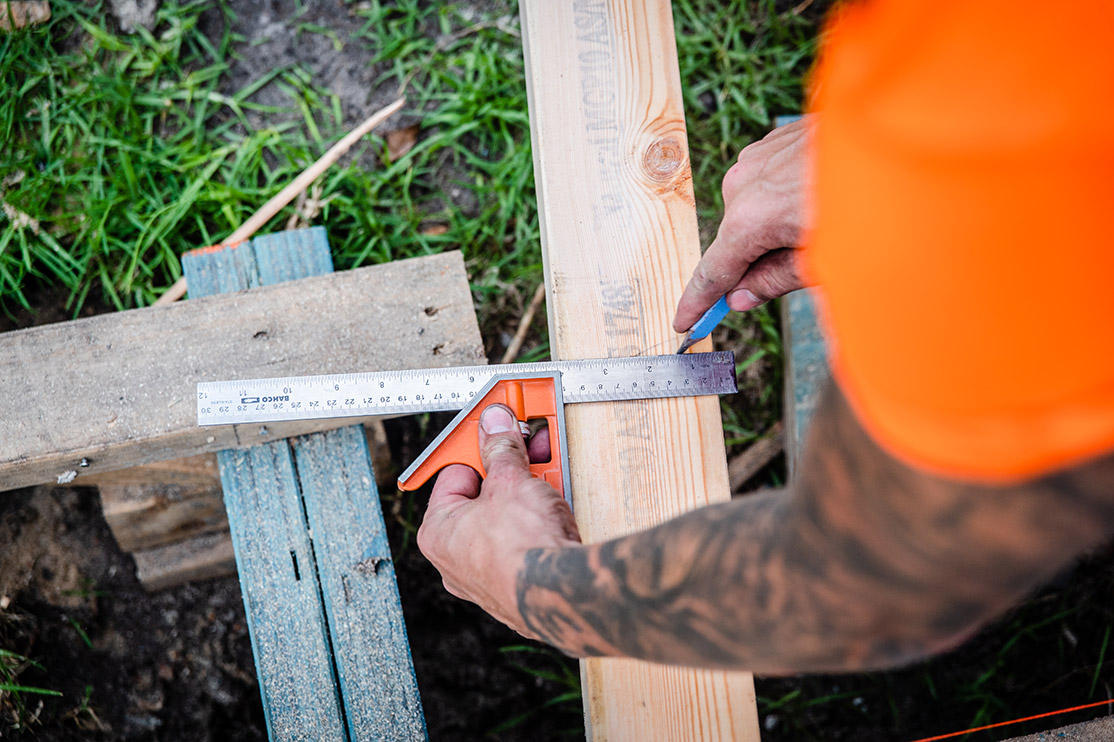Figuring out the costs associated with building or renovating your property can be a complex task. The earliest stages of a construction project can be difficult to navigate, particularly for the uninitiated. I tend to find clients approach me with a similar set of questions when it comes to budgeting for their projects, some of which I have provided the answers to below as part of my latest blog post.
Should I always be looking for the lowest price?
With building it’s fair to say in most cases you get what you pay for. When making such a substantial investment, it’s not always in your best interests to select your builder based on the lowest price. You’ll want to make sure whoever you employ to carry out the renovation work is reliable and offers quality in their craft.
Make sure whatever builder you’re considering is fully licensed, registered and insured. Consider checking out their website for positive testimonials and examples of successful projects they have worked on. Online reviews can also be a useful indicator of the quality of a contractor. Speaking to friends, family or the owners of neighbouring properties for first-
hand recommendations from people you trust is another great way to find the right builder for you.
What costs make up the total price?
Firstly, here is a list of all the significant expenses associated with a construction project that doesn’t go towards the actual physical build:
- All necessary design drawings, permits and reports
- 10% GST – A 500k job will require you to hand over 50k to the government
- Consultancy fees
- Warranty Insurance (approx. 1%)
- 0.5% long service levy
Aside from the above, the final cost depends on an extensive list of elements including materials, labour, equipment, fixtures, fittings and timeframe.
What is involved with a rough estimate?
Once you’ve found and engaged a builder you’re comfortable with, they will work with you to develop a rough cost estimate detailing the realistic expenses associated with your plans. This is vital because it will help you decide whether you have the necessary budget before you get too far along in the process.
Your builder will base this estimate on size, quality and level of difficulty, before working out a loose rate per m2. You’ll end up with a ballpark figure which is essential to note and might not necessarily end up reflecting what you pay on completion. That much more precise figure can only be worked out once more details are available and more decisions are made.
So I’ve got my rough estimate. What happens next?
You’ll need to sign a Preliminary Building Agreement. It’s a pre-contract document that outlines all tasks required for the pre-construction stage. You can engage your builder to guide you through the development of this agreement, alongside your chosen architect or draftsperson. They will work together to make sure your plans are achievable, appropriate, and feasible within the budget allocated at the rough estimate stage.
For more detail on Preliminary Building Agreements, click here.
Once you’ve received all the necessary drawings, permits, engineering and soil reports, your builder will invite you to make some more definitive decisions. Your final choice of materials, fixtures and fittings, equipment, any luxury items and the overall timeframe will all need to be agreed. All of this can cause variations from your initial rough estimate and will be used by your builder to develop your detailed fixed price quote.
What is a detailed fixed price quote?
Using all the intelligence gathered throughout the preliminary stages of your project, your fixed price quote will give an exact, final figure for the cost of your project. It will include a detailed breakdown of all elements and their associated costs. Put simply it will tell you exactly how much you can expect to pay upon completion of the project. And you can be confident there will be no deviations, nasty surprises or unexpected costs.
Do I have to go through this process?
Our advice would be yes, definitely. It pays to conduct a thorough consultation with your builder at the beginning of the project and to take advantage of all the available budgetary estimation steps, including rough estimates and detailed fixed prices. That way, you’ll be making informed and realistic decisions relating to your budget throughout the entire process.
Without this kind of information on hand, you could find yourself hit with unexpected extra costs as the project progresses. And worst-case scenario, as your budget depletes you may even end up having to sacrifice on quality to make sure the job is completed.
Getting started
To get the ball rolling on your renovation, the best place to start is to reach out to JTDODD and start the conversation. Our friendly and highly-knowledgeable team will walk you through the process to get your vital rough cost estimate, and will then remain on-hand throughout every step of the process.
Get started today by contacting us and introducing yourself. Simply click here!

